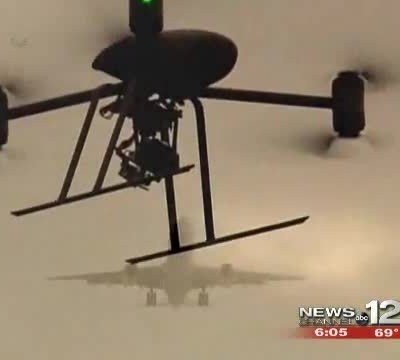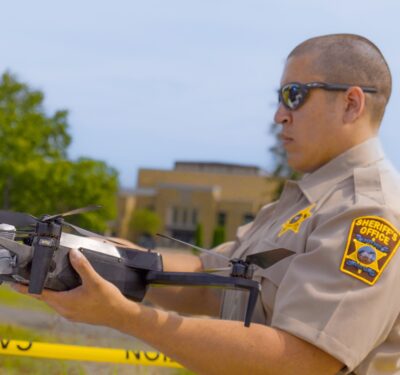
ARLINGTON, Virginia—The Association for Uncrewed Vehicle Systems International (AUVSI) announced the launch of the Partnership for Drone Competitiveness, a coalition it said is built to support a stronger U.S. drone industry, enable greater security for customers and end users, forge American leadership in advanced aviation and effectively level the playing field for domestic and allied drone manufacturers against foreign subsidized competition.
The partnership represents a coalition of leading U.S. and allied drone and drone component manufacturers and enterprise users of drones. The group will advocate for targeted investments and policies to level the playing field against state-subsidized competitors and reduce dependence on foreign supply chains for components and rare earth materials.
“Recognizing that a strong domestic industry represents a strategic imperative in the new era of strategic competition, we look forward to introducing the partnership to key audiences in Washington, D.C. and across the country, as we ensure that America can meet the growing demand from industry and government,” said Michael Robbins, AUVSI’s chief advocacy officer.
“The partnership is a critical step toward a strong and secure domestic drone industry and leveling the playing field against the unfair trade practices by the People’s Republic of China.”
Partnership supporters include AeroVironment, Arrive, Avangrid, BRINC Drones, Dark Wolf Solutions, Censys Technologies, Draganfly, DroneUp, Easy Aerial, MatrixSpace, MissionGO, Mobilicom, Near Earth Autonomy, Ondas Holdings, Phoenix Air Unmanned, ProximaVision, Skydio, Skyfish, Skyfront, Valor Robotics, Watts Innovations, Workhorse Aero, WISPR Systems and members of AUVSI’s Air Advocacy Committee.
In years past, AUVSI has had representation from Chinese drone powerhouse DJI on its board of directors, but the new partnership is focused on curbing Chinese influence and market domination, including from DJI.
In addition to launching the partnership, AUVSI released a corresponding whitepaper detailing the partnership’s inception, the challenges facing the industry, and policy recommendations for U.S. lawmakers and regulators. Among the whitepaper’s key findings are:
China Flooding the Market with Subsidized Drones: Chinese drones account for almost all of the drones used in consumer, industrial, and first responder markets, largely benefitting from “Made in China” economic policies bolstered by the People’s Republic of China. The result of a market flooded by Chinese products represents a threat to the United States’ national security, aviation leadership and workforce development, and values and fundamental human rights. The report singles out DJI as dominating the U.S. and global market and also being “a major beneficiary of the “Made in China 2025” policy and related government subsidies.
The Need to Boost the U.S. Drone Industry: Incentivizing U.S. leadership in the drone industry represents a strategic imperative in a market long characterized by state-subsidized companies based in China. AUVSI believes it is essential to advance security and competitiveness in a thoughtful way that respects existing investments while building toward a more secure, sustainable future that puts U.S. interests first.
The partnership will support policies and legislation which allow the U.S. to reposition itself as the global leader in advanced aviation. The partnership intends to host an in-person, public event later this fall commemorating recent legislation. The partnership’s recommended legislative actions include:
• Establishing manufacturing tax credits and loan guarantees;
• Supporting access to critical minerals;
• Creating new federal grants for first responders and enhancing existing ones;
• Enacting pending pieces of legislation including the Drone Infrastructure Inspection Grant Act, the American Security Drone Act, and FAA reauthorization;
• Ensuring funding for and suitable transition periods for agencies transitioning from foreign made to secure drone fleets.
“Because of how drones are operationally deployed, they have inherently unique access to sensitive systems and enterprise information,” Brian Harrell, the former assistant secretary for infrastructure protection at the Department of Homeland Security, said in AUVSI’s announcement.
“Organizations use this information to improve operations, secure U.S. critical infrastructure, identify and mitigate vulnerabilities, conduct search and rescue operations, and respond to natural disasters. Drones provide the data and imagery used for vital decision-making and planning.
“However, in the hands of the adversary, that same data offers the potential for data exfiltration, espionage, and exploitation. This is exactly the concern with Chinese-manufactured drone technology. Because Chinese drones are a threat to law enforcement and critical infrastructure operators, the U.S. government must act to mitigate.”






